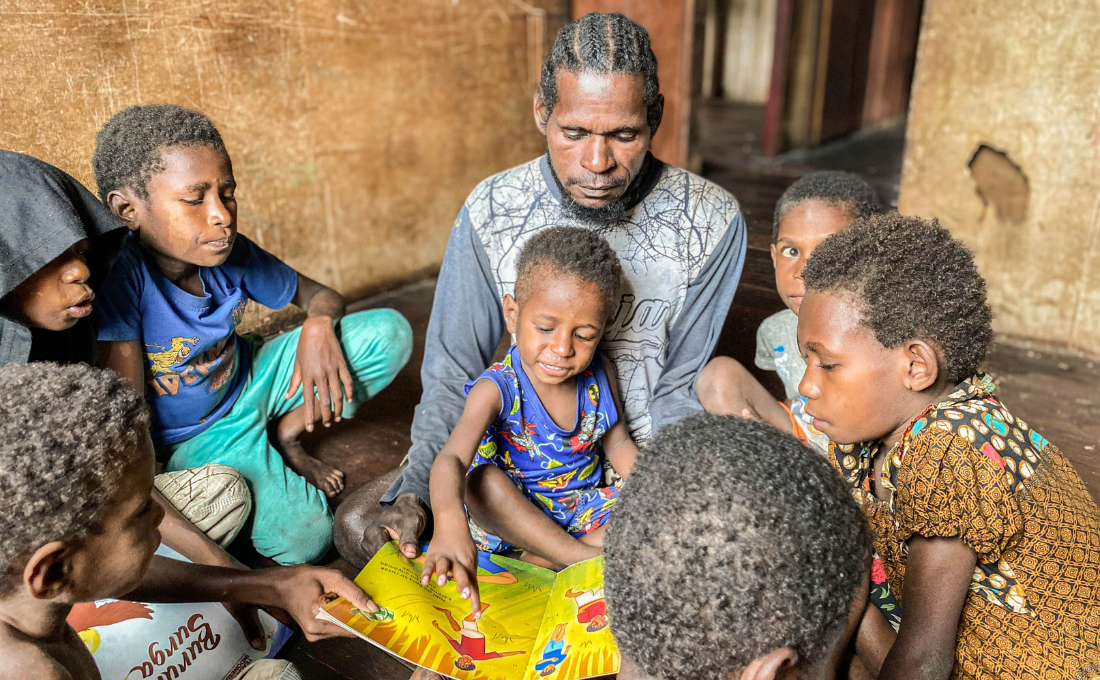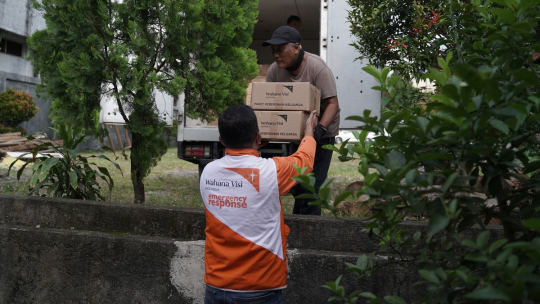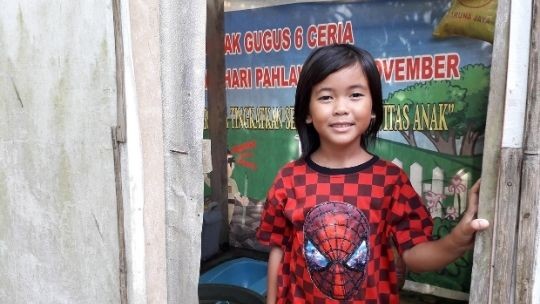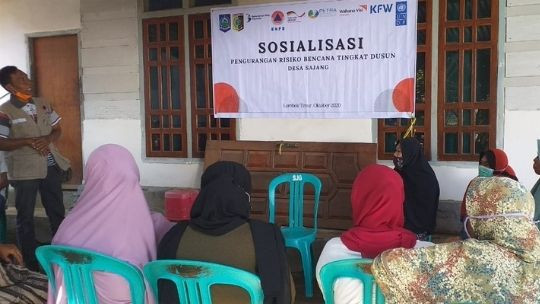I Hope, My Child can Read

A literacy emergency has occurred in one of the villages in Asmat Regency, Papua. Children living in this village have low reading skills. According to a survey conducted by WVI, only six children in this village could read, although they were still categorized as beginner readers. This means that these children could already read but could not yet understand the contents of what they read. Meanwhile, the majority of other children could not read at all.
This serious problem cannot be solved without cooperation between teachers, parents, the community, and village government. The literacy skills of children in this village can develop if all parties facilitate literacy activities, starting from home, school, and the village. This was also acknowledged by one of the parents, Abraham. He realized that parents are obligated to educate their children. For example, by accompanying their children to learn to read at home.
Abraham is one of the parents who becomes an example for having carried out a mentoring role for his children. He experienced this change after attending Parenting Awareness sessions facilitated by WVI. As a father of three, one of whom is nine years old and the other two are toddlers, Abraham plays a crucial role in educating his children from home. For children aged 0-7 years, the role of parents is very important because parents are the primary teachers for their children.
Abraham started this good habit in a simple but meaningful way. He started with the immediate environment. Children learn to read the names of animals or the colors of plants around the house. It turns out that there are so many things that can be explored from the environment closest to home so that children's literacy skills can improve.
Maria, Gori, and Yulianus, Abraham's children, also really enjoy learning to read. However, there is another challenge, namely access to reading materials. Children in Asmat Regency are hindered by a lack of teaching materials and very limited reading media in the village. To help overcome this obstacle, parents who participated in the Parenting Awareness activities were also taught how to make children's teaching materials or a reading corner at home. In addition, parents are also encouraged to read together with their children.
"I have a hope for them so that they can become better people than me, and can pursue the goals they hope for. So I also have to guide them well and diligently so that what I hope for can happen," said Abraham. He is also very happy with the presence of WVI staff in the village to help teach his children.
The village where Abraham lives already has a Rumah Baca (reading house). He always encourages his children to actively participate in Rumah Baca activities so that they can also learn there. "With this kind of mentoring, I am even more enthusiastic about giving lessons to my children," concluded Abraham.
Asmat Regency, Papua is one of the areas supported by WVI that focuses on transformation in the education sector, especially children's literacy. The Kampung Literasi (literacy village) is the model that is applied. This means that literacy activities not only happen in schools but also at home and in the village. Parents and community stakeholders are involved in supporting various literacy activities. So, wherever the child is, they can learn to read, and anyone can become a reading teacher.
The village where Abraham lives is developing into a Kampung Literasi. There is a Rumah Baca as a regular non-formal activity that invites children to read or listen to stories. And now, through activities such as Parenting Awareness, parents are encouraged to design their homes as literacy-rich homes. One way is by creating a reading corner at home and accompanying children in reading together with parents.
Hopefully, with such comprehensive intervention, children in Asmat Regency, Papua can have comprehensive reading skills. They can start exploring big dreams that begin with being able to read and understand the contents of what they read. Let's support children's literacy in Asmat together with WVI and create more Kampung Literasi.
Author: Alfred Dadi (Field Facilitator in Asmat Area Programme)
Editor: Mariana Kurniawati (Communication Executive)



